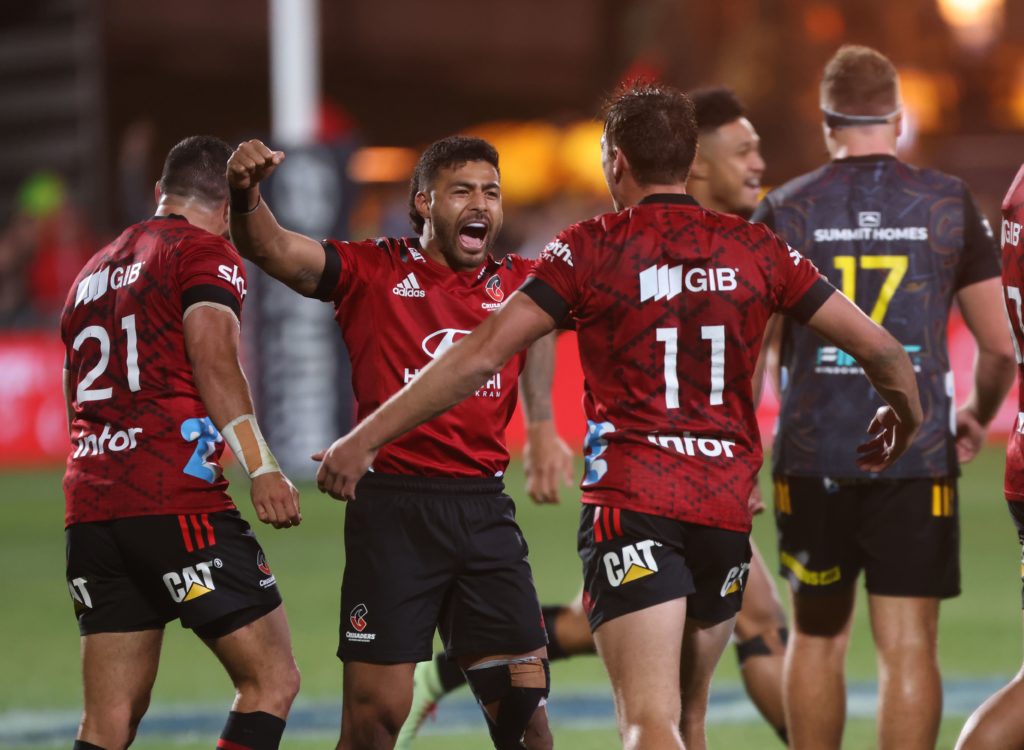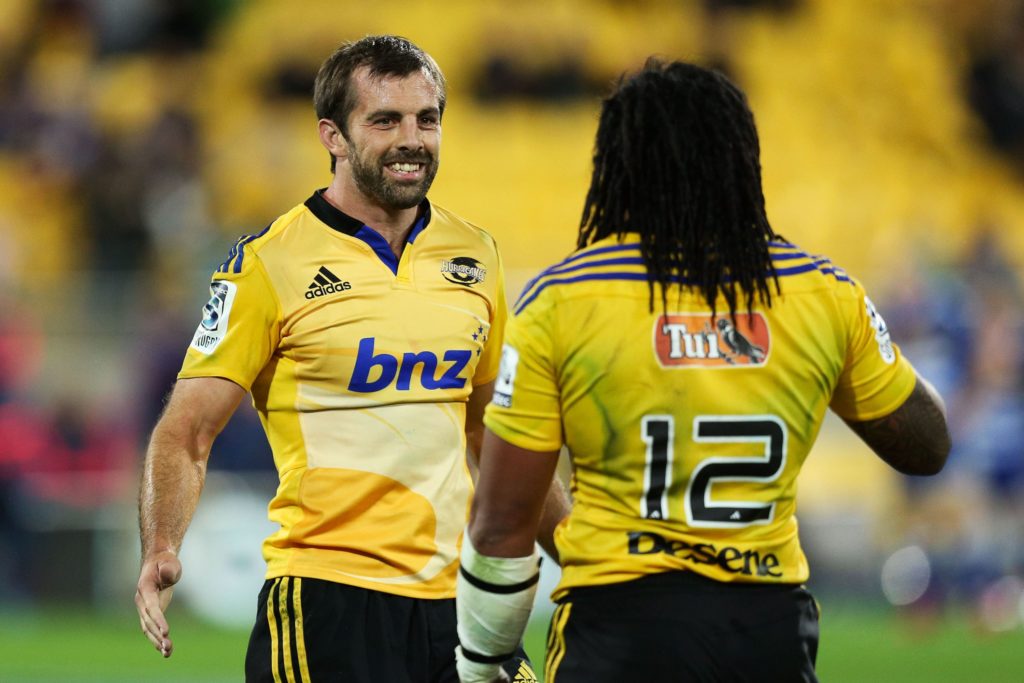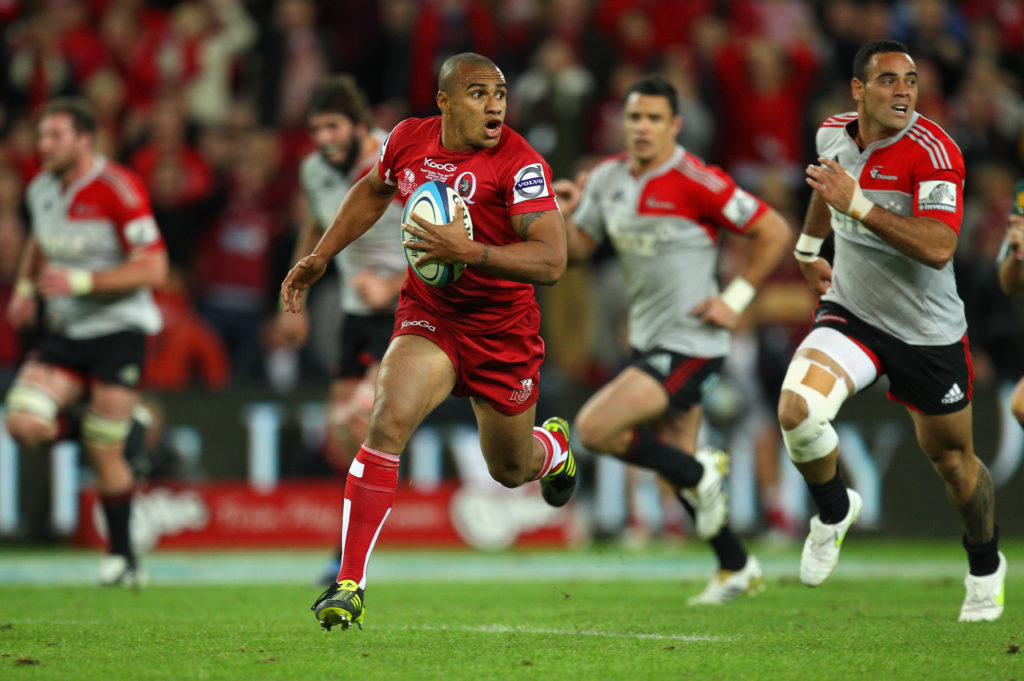Going into this year’s Super Rugby Trans-Tasman competition, I was cautiously optimistic that some of the Australian sides might be able to seriously challenge the New Zealand teams.
I knew it was going to be tough going and I knew that the Kiwi sides would enter pretty much every match as favourites but after a successful Super Rugby AU competition, I think everyone had reason to believe that it wouldn’t all be smooth sailing for New Zealand.
Super Rugby AU was great for Australia because our players were finally getting used to winning and winning consistently – because obviously playing against the Kiwi teams every couple of weeks over the last however many years, we didn’t see too much success.
Naturally, we then reached the point where we needed to test ourselves against the best and without being disrespectful to Super Rugby AU, it was clear that the likes of the Crusaders, Chiefs and even Hurricanes were probably a cut above.
Those NZ teams were all so evenly matched throughout Super Rugby Aotearoa. Obviously, the Crusaders were the benchmark but all five of those teams put on some incredible performances.

As a fan now, when I sit back and watch the Aotearoa competition, whatever teams are playing, you know it’s going to be a good game. You don’t know who’s going to win, it’s a coin toss – even when the Crusaders are playing because there’s so much talent on the other teams.
But if you look at Australia, you’ve got the Reds, the Brumbies and then daylight. Everybody else is miles behind and the Western Force were the only side to really get a look-in once the competition was properly underway.
When you’re constantly playing against better opposition week-in and week-out, the level’s going to get higher and higher – and I think that’s exactly what’s happened to the Kiwi teams over the past two years, they’ve taken themselves to another level entirely.
That’s become painfully clear over the opening two rounds of Super Rugby Trans-Tasman.
Three weeks ago, the Reds were celebrating a Super Rugby AU championship (though it’s more comparable to a conference title than anything else) but on Saturday they were absolutely put to the sword by an admittedly exceptional Crusaders team.
Even back when I was playing for the Reds and the Crusaders weren’t winning titles, they were still the gold standard. It was them and the Hurricanes who we were always so wary of.
That Crusaders side is honestly unbelievable. I’ve been trying to work out for so long why they’re so good. Yes, they’ve got world class players – but you can bring guys in and take guys out and they still just roll on.
They do everything with such accuracy and efficiency and that allows them to play at a speed that others teams just can’t keep up with.
A lot of the teams in New Zealand play in a similar way, making use of the pod system, forward tip-ons and the like, but the reason the Crusaders do it so well is they’re so accurate in their set-up and they’re so accurate in their breakdown. They play at a pace and do everything at a pace that you can’t live with and then under the fatigue and pressure, defenders make mistakes.
The Reds look like they’re probably the fittest team in Australia but they didn’t have any answers to the Crusaders on Saturday night.
Even back when I was playing for the Reds and the Crusaders weren’t winning titles, they were still the gold standard. It was them and the Hurricanes who we were always so wary of.
The Hurricanes were sort of an outlier from the other Kiwi teams because they didn’t so much play to the same structure, they were loose and played with a lot of flair and X-factor. At the time there was Piri Weepu, Cory Jane, Ma’a Nonu, Conrad Smith – I think you might have had a young Beauden Barrett.

Whenever we did previews for them, it was always about keeping the game as structured as you possibly could because the moment it got loose, they were incredible. They would hurt you. They fed off it and grew in energy and confidence when the game became loose. I always found them really difficult to play against.
And obviously the Crusaders, for the exact opposite reason. They’ve always been so incredibly structured, they’re very hard to break down. When you have the ball, you know you have to keep the ball for a large amount of time to be able to break down their defence because they’re just so well organised.
Truth be told, we would always talk up the Australian derbies – when we would do media and things, you’d say the old cliches, “Yeah it’s going to be tough, there’s a lot of tradition in the rivalries, we’re expecting a fierce battle” – but while we knew we were going to be physically bashed up by our Australian brothers and it was always going to be competitive, we never went into those games on edge, feeling like it was a big game.
But that’s how we felt when playing the Kiwi sides. To me, they were definitely the tougher games, just because of the standard and the level of rugby that they played at. They always played with a lot of pace and intensity in their game. It was always physically more taxing, physically more demanding. It was always a different week, a more focussed week whenever you were playing the Kiwi teams as opposed to the local derbies.
I think I probably lost more games against the Waratahs and Brumbies than I won, but I still just never felt that same pressure as when we were up against the Kiwi teams or the big South African sides.
From what I saw as a kid – and from talking to some of the guys more senior to me – that wasn’t the case during the early stages of Super 12, when Australia had just three teams. Once the more teams came in, the player pools tended to be a little more diluted and I don’t think you had the same fierce intensities in the rivalries as you did in years gone by.
Games like Queensland playing New South Wales were always talked up as major battles but that wasn’t really how it felt for me in my years with the Reds. We didn’t always win, of course – I think I probably lost more games against the Waratahs and Brumbies than I won, but I still just never felt that same pressure as when we were up against the Kiwi teams or the big South African sides.
Sure, you tried to get the upper hand over your Wallabies teammates and sometimes things probably got a little bit too heated in that respect.
I remember one time when we played the Waratahs, I think it must have been in about 2014 or 2015, he put a shot on me and I said something nasty, “Look at you, mate, you’re a has-been. Bugger off” – or something to that effect. He looked at me and laughed because he’s a great guy and immediately after the game I apologised to him and sent him a text too.
But just because you’re always looking forward to those games and to getting one up on your mates, that doesn’t translate to the expectation of those derbies being tougher games.
The New Zealand teams, you always had such small room for error. Any one mistake and they’ll be sixty metres down the field scoring a try or they’ll make a linebreak and you’re constantly on the backfoot.

Which brings us back to the current situation, where our teams have been separated from the Kiwis for so long and are only now being reminded of the intensity that they bring to matches.
I completely understand the benefits of keeping Super Rugby AU, 100 per cent. Like I said, if you’re playing the Kiwi teams and getting pasted all the time, you lose confidence and you lose fans.
Kids will want to go play sports that Australia is successful in, and play for teams that are winning. That on-field success is always going to be hugely important for the growth of our game but the problem with Super Rugby AU is that it doesn’t leave room for growth. You just close yourself off completely to other styles of play and other levels of competition.
The New Zealand teams play a high-paced, highly skilled style of rugby and Australian players need regular exposure to that – that’s become evident from how Super Rugby Trans-Tasman is progressing so far. The ship might not right itself this season, but we’ll see the Australian teams adjust over time.
I’d love to see a straightforward round-robin competition involving the 10 teams from Australia and New Zealand plus two from the Pacific Islands and maybe two from Japan – none of this weird conference stuff that impacts finals placings or the way teams play.
The mistake we made was we leaned too much towards playing to that standard, as opposed to just playing to win, grow and be a better team week-in and week-out.
When I was with the Rebels, we had a big focus on our local derbies because if we were to top our conference, we’d be guaranteed a spot in the finals.
The mistake we made was we leaned too much towards playing to that standard, as opposed to just playing to win, grow and be a better team week-in and week-out. That probably caught up with us towards the back-end of our seasons where we didn’t grow as much as a team, we became a bit one-dimensional and we got found out.
We were guilty of playing to the level of the Australian teams in terms of those derby matches – which is a similar issue now with Super Rugby AU.
Obviously it would take some changes to the calendar to involve teams from the Top League, but I think it would be hugely beneficial for everyone involved.
Exposing yourself to different styles of rugby is how you get better as a player, and how international teams will become stronger over time.
Super Rugby Trans-Tasman might not be great for the ego right now, but there are some huge benefits for Australia to maintain their relationship with New Zealand, and I think it’s got to be the play moving forward.


Comments
Join free and tell us what you really think!
Sign up for free